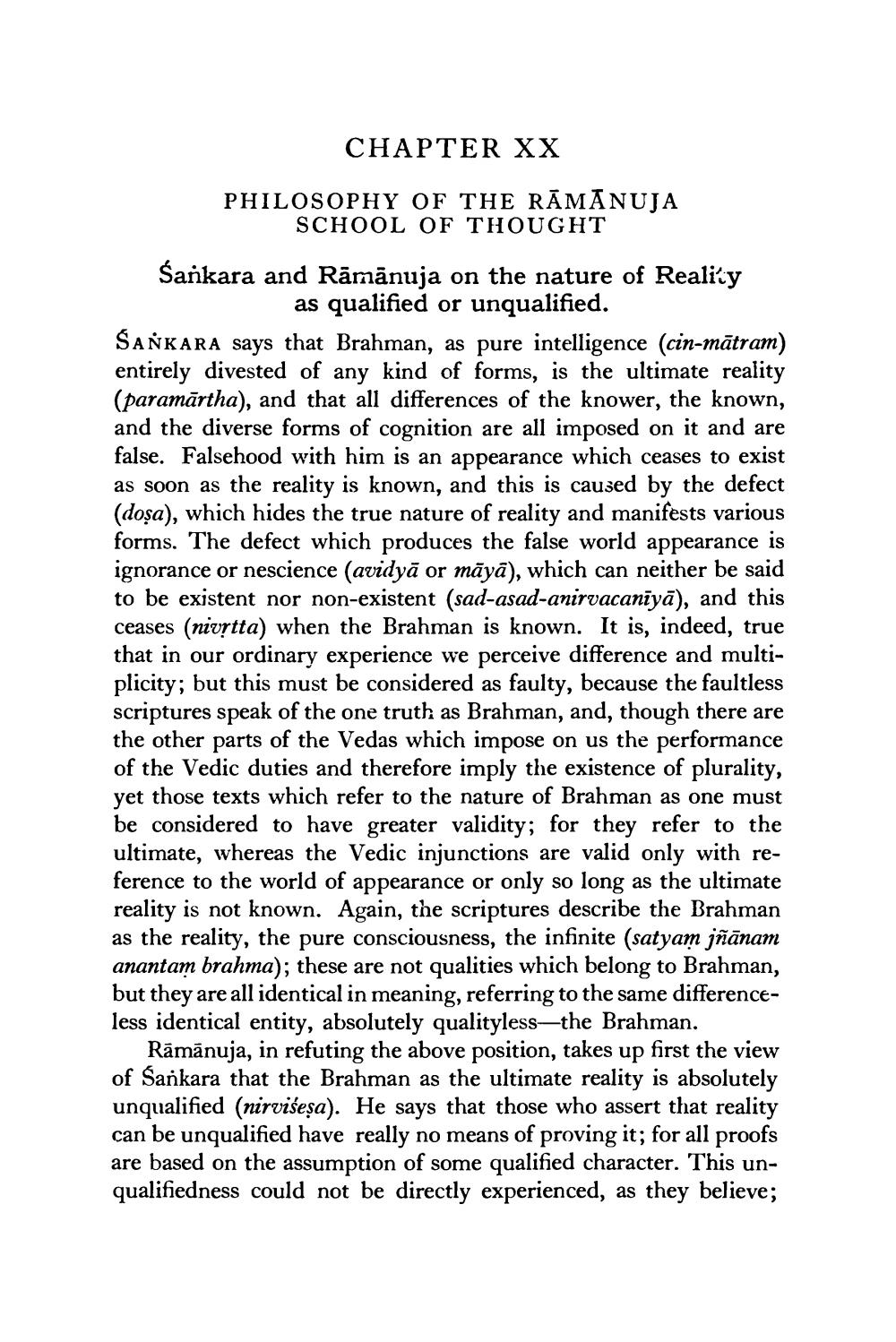________________
CHAPTER XX
PHILOSOPHY OF THE RAMĀNUJA SCHOOL OF THOUGHT
Śankara and Rāmānuja on the nature of Reality as qualified or unqualified.
SANKARA says that Brahman, as pure intelligence (cin-mātram) entirely divested of any kind of forms, is the ultimate reality (paramartha), and that all differences of the knower, the known, and the diverse forms of cognition are all imposed on it and are false. Falsehood with him is an appearance which ceases to exist as soon as the reality is known, and this is caused by the defect (dosa), which hides the true nature of reality and manifests various forms. The defect which produces the false world appearance is ignorance or nescience (avidya or māyā), which can neither be said to be existent nor non-existent (sad-asad-anirvacaniyā), and this ceases (nivrtta) when the Brahman is known. It is, indeed, true that in our ordinary experience we perceive difference and multiplicity; but this must be considered as faulty, because the faultless scriptures speak of the one truth as Brahman, and, though there are the other parts of the Vedas which impose on us the performance of the Vedic duties and therefore imply the existence of plurality, yet those texts which refer to the nature of Brahman as one must be considered to have greater validity; for they refer to the ultimate, whereas the Vedic injunctions are valid only with reference to the world of appearance or only so long as the ultimate reality is not known. Again, the scriptures describe the Brahman as the reality, the pure consciousness, the infinite (satyam jñānam anantam brahma); these are not qualities which belong to Brahman, but they are all identical in meaning, referring to the same differenceless identical entity, absolutely qualityless-the Brahman.
Rāmānuja, in refuting the above position, takes up first the view of Sankara that the Brahman as the ultimate reality is absolutely unqualified (nirviseṣa). He says that those who assert that reality can be unqualified have really no means of proving it; for all proofs are based on the assumption of some qualified character. This unqualifiedness could not be directly experienced, as they believe;




